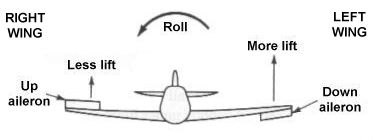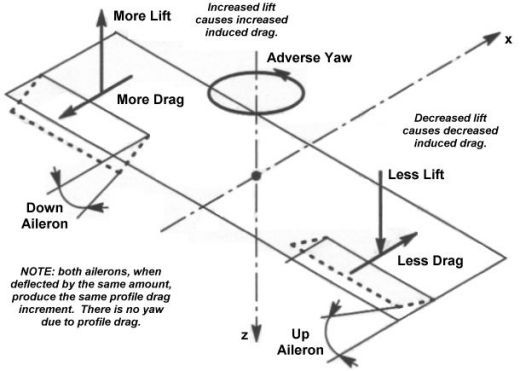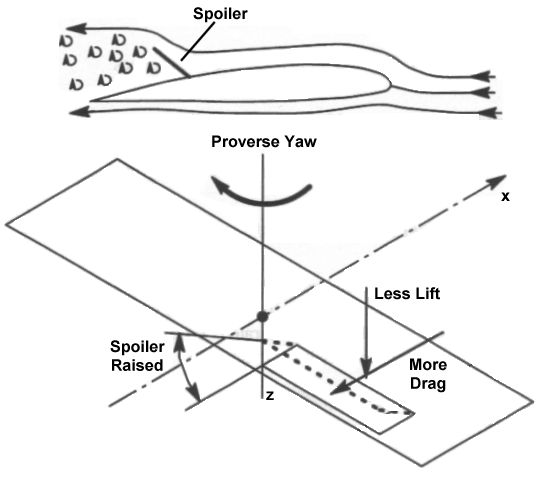|
||||||||||
|
|
||||||||||
|
||||||||||
|
|
||||||||||

You are also correct that adverse yaw would cause the nose to yaw to the left, thereby partially opposing the desired direction of roll. Adverse yaw is caused by the fact that the wing with the down aileron generates more drag than the wing with the up aileron. This differential causes the plane to yaw to the left in the example you have described. This "adverse yaw" behavior is illustrated below.

What I do not understand is your comment about the aircraft yawing to the right. Is this aircraft response based on actual experience flying a plane or a flight simulator or just your gut instinct as to what should happen? If it is based on real-life experience, the aircraft in question may not suffer from adverse yaw or its effects may have been too small to notice at the conditions you were flying at.
In a previous question on adverse yaw, we discussed methods of alleviating or eliminating the effect altogether. A couple of methods were the use of Frise and differential ailerons. These ailerons deflect according to the same principles described above, but they do so in such a way as to minimize the difference in drag created by the left and right sides of the aircraft. If the plane you are talking about is equipped with devices of this kind, the effects of adverse yaw may not be noticable.
We also discussed spoilers and cross-coupled controls, two approaches that eliminate adverse yaw completely. Spoilers actually create the effect you seem to be describing in your question--a combined roll and yaw in the same direction. This effect is called proverse yaw, illustrated below.

Either you are confused about the effects you are observing or I am misunderstanding your question, but I encourage
you to review our previous answer on the topic of adverse yaw to clarify any misconceptions.
- answer by Jeff Scott, 3 August 2003
Read More Articles:


|
Aircraft | Design | Ask Us | Shop | Search |

|
|
| About Us | Contact Us | Copyright © 1997- | |||
|
|
|||